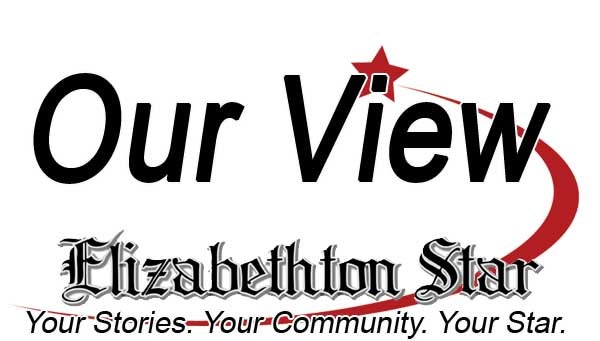Roads need a reliable funding source and solution-oriented politicians
Published 9:41 am Monday, October 10, 2016
Good roads are an important aspect of quality of life. Tennessee admittedly has a road problem. More to the point, it has a road financing problem.
The Transportation Coalition of Tennessee will be in Carter County Oct. 19 at 8 a.m. at the Carter County Highway Dept. to discuss the transportation infrastructure funding dilemma.
The Transportation Coalition steering committee includes representatives from the Tennessee Infrastructure Alliance, Auto Club Group/AAA Tennessee, Tennessee Public Transportation Association, Tennessee Trucking Association, Tennessee County Highway Officials Association, Tennessee Municipal League, American Council of Engineering Companies of Tennessee and Tennessee Road Builders Association.
The coalition was created to educate the public and state legislators as it seeks an increase and reform in Tennessee’s transportation fees. The coalition aims to recruit other interested parties to join in seeking a comprehensive funding solution to maintain and expand Tennessee’s critical transportation system.
Tennessee is a pay-as-you-go state, with transportation projects funded primarily by state and federal fuel tax revenues. The dollars are apportioned for state and local projects, which include maintenance, repair and new construction.
Currently, Tennessee has a multi-billion dollar backlog of highway projects across this state that address key access, safety and economic development issues, and that’s only going to grow. The 181 projects in 62 counties will cost $6.1 billion. With funding at current levels, the backlog will not be completed or under contract until 2034. Among road projects in Carter County on that wish list include a number of bridges as well as the construction of a new road from US-321 (SR-91) from SR-67 to SR-38, which would cost $17 million.
“We have no transportation debt, and we do a great job maintaining our roads, but we know we have challenges on the horizon. We know that we can’t depend on the federal government to be the funding partner that it once was. We also know that as our infrastructure ages, maintenance becomes more important and more expensive,” Gov. Bill Haslam said earlier this year as he made a road trip across the state to address the growing problem.
Tennessee’s transportation system includes 95,000 miles of roads, 1,100 miles of interstates, 19,000 bridges, 28 transit systems in 95 counties, 79 general aviation airports, 949 miles of waterways and more than 3,000 miles of railroads.
A 2015 Tennessee Comptroller’s report on transportation funding states that revenues are not expected to be sufficient to maintain current infrastructure.
Add to that higher construction costs, more fuel-efficient cars on the road and reduced driving as gas prices creep up, and you have a formula that will increase the growing gap between transportation needs and available revenue.
Tennessee’s population is expected to grow by 2 million by 2040, which puts a greater demand on the state’s infrastructure.
Many potential solutions have been looked at — among them, toll roads; taxing drivers on how many miles they drive each year; public-private construction agreements; and additional fees on fuel-efficient vehicles (especially hybrids and electric cars). All have their drawbacks, as does increasing either the state or federal gas tax.
No one relishes paying more, but someone has to pay for our transportation network. It is vital to our economic future. Broken and overcrowded roads and bridges cause delays in delivering products, increase maintenance cost and reduce fuel efficiency and discourage businesses from locating in a particular area.
Common sense would suggest that more than one remedy may be needed to fatten federal and state highway funds and to ensure that our transportation network remains one of our strongest economic drivers. But reaching a solution requires serious discussions, not partisan jabs and grandstanding.
It also requires that both politicians and Americans face the hard truth that the cost of good roads must be borne by all of us.


